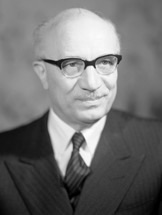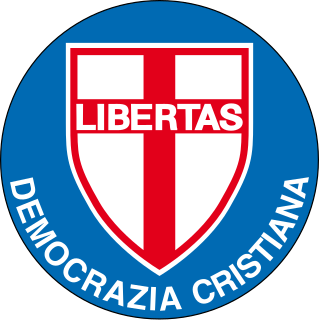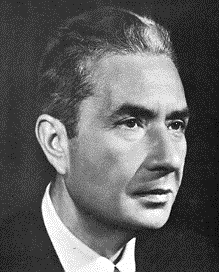
The 2011 Italian local elections were held on 15–16 May, with a second round on 29–30 May. In Italy, direct elections were held in all 1,177 comuni and 11 provinces: in each comune were chosen mayor and members of the City Council, in each province were chosen president and members of the Provincial Council. Of the 1,177 comuni, 30 were capoluoghi and only 105 had a population higher than 15,000 inhabitants.

The 2010 Italian local elections were held on different dates; most on 29–30 March oncurrently with the Regional elections.

The 2012 Italian local elections were held on 6–7 May, with a second round on 20–21 May. In Italy, direct elections were held in 948 comuni: in each comune were chosen mayor and members of the City Council. Of the 948 comuni, 28 were capoluoghi and only 176 had a population higher than 15,000 inhabitants.

The 2013 Italian local elections were held on different dates; most on 25–26 May, with a second round on 8–9 June. In Italy, direct elections were held in 720 comuni: in each comune were chosen mayor and members of the City Council. Of the 720 comuni, 20 were capoluoghi and only 171 had a population higher than 15,000 inhabitants.

Val Brembilla is a comune in the province of Bergamo, in Lombardy. It was established by the regional council on 4 February 2014 from the fusion of the comuni di Brembilla and Gerosa. A referendum to create this comune was held on 1 December 2013. The referendum was passed with 77% yes and 23% no votes. The first municipal elections were held on 25 May 2014.

The 2014 Italian local elections were held on 25 May, with a second round on 8 June. In Italy, direct elections were held in 4086 comuni: in each comune were chosen mayor and members of the City Council. Of the 4086 comuni, 29 were capoluoghi and 243 had a population higher than 15,000 inhabitants.

The 2015 Italian local elections were to be held on 31 May, with a second round on 14 June, concurrently with the Regional elections. In Italy, direct elections were held in 1063 comuni: in each comune were chosen mayor and members of the City Council. Of the 1603 comuni, 15 were capoluoghi and 120 had a population higher than 15,000 inhabitants.

The 2016 Italian local elections were held on 5 June, with a run-off, where necessary if a candidate for Mayor obtained less than 50 percent of votes in the first round, held on 19 June.

The 1946 Italian local elections were held on 10–17–24–31 March and 17 April. In Italy, direct elections were held in 5,772 comuni: in each comune were chosen mayor and members of the City Council.

The 1951 Italian local elections were held on 10–17–24–31 March and 17 April. In Italy, direct elections were held in 5,772 comuni: in each comune were chosen mayor and members of the City Council.

The 1956 Italian local elections were held on 27 May. In Italy, direct elections were held in 5,772 comuni: in each comune were chosen mayor and members of the City Council.

The 1964 Italian local elections were held on 22 November. In Italy, direct elections were held in 5,772 comuni: in each comune were chosen mayor and members of the City Council.

The 1970 Italian local elections were held on 7 and 8 June. In Italy, direct elections were held in 5,772 comuni: in each comune were chosen mayor and members of the City Council.

The 1975 Italian local elections were held on 15 and 16 June. In Italy, direct elections were held in 5,772 comuni: in each comune were chosen mayor and members of the City Council.

The 1980 Italian local elections were held on 8 June. In Italy, direct elections were held in 5,772 comuni: in each comune were chosen mayor and members of the City Council.

The 1985 Italian local elections were held on 12 and 13 May. In Italy, direct elections were held in 5,772 comuni: in each comune were chosen mayor and members of the City Council.

The 1990 Italian local elections were held on 6 and 7 May. In Italy, direct elections were held in 5,772 comuni: in each comune were chosen mayor and members of the City Council.

The 2017 Italian local elections were held on Sunday 11 June. If necessary, a run-off vote was held on Sunday 25 June. The term of mayors and councils will last five years, unless an early election is triggered.

The 2018 Italian local elections were held on different dates; most on 10 June, with a second round on 24 June. In Italy, direct elections were held in 720 comuni: in each comune were chosen mayor and members of the City Council. Of the 783 comuni, 21 were capoluoghi and only 112 had a population higher than 15,000 inhabitants.

The 2019 Italian local elections will be held on 26 May 2019, together with the 2019 European election, with a second round on 9 June. Direct elections will be held in 3843 comuni: in each comune mayor and members of the City Council are going to be chosen. Of the 3841 comuni, 30 are capoluoghi.












